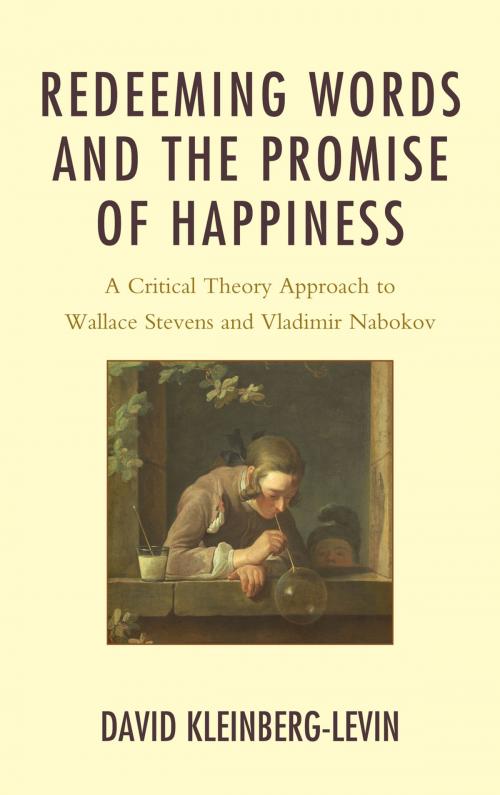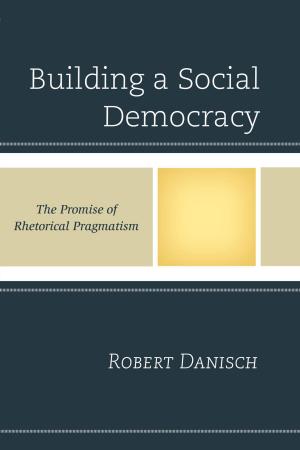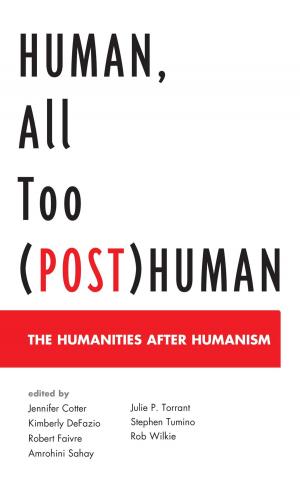Redeeming Words and the Promise of Happiness
A Critical Theory Approach to Wallace Stevens and Vladimir Nabokov
Nonfiction, Religion & Spirituality, Philosophy, Aesthetics, Fiction & Literature, Literary Theory & Criticism, Theory| Author: | David Kleinberg-Levin | ISBN: | 9780739177525 |
| Publisher: | Lexington Books | Publication: | August 31, 2012 |
| Imprint: | Lexington Books | Language: | English |
| Author: | David Kleinberg-Levin |
| ISBN: | 9780739177525 |
| Publisher: | Lexington Books |
| Publication: | August 31, 2012 |
| Imprint: | Lexington Books |
| Language: | English |
This book boldly ventures to cross some traditional academic boundaries, offering an original, philosophically informed argument regarding the nature of language by reading and interpreting the poetry of Wallace Stevens and the novels of Vladimir Nabokov. So it is a work both in literary criticism and in philosophy. The approach is strongly influenced by Walter Benjamin’s philosophy of language and Theodor Adorno’s aesthetic theory, but the philosophical thought of other philosophers—notably Plato, Kant, Hegel, Emerson, Heidegger, and Wittgenstein—figures significantly in the reading and interpretation. The essence of the argument is that, despite its damaged condition (standardization, commodification, staleness), language is, as such, by virtue of its very existence, the bearer of a utopian or messianic promise of happiness. Moreover, it is argued that, by reconciling the two senses of sense (sensuous sense and intelligible sense), showing the sheer power of words to create fictional worlds and destroy what they have just created, and redeeming the revelatory power of words—above all, the power to turn the familiar into something no longer familiar, something astonishing or perplexing—the two writers in this study sustain our hope for a world of reconciled antagonisms and contradictions, evoking in the way they freely play with the sounds and meanings of words, some intimations of a world—our world here, this very world, not some heavenly world—in which the promise of happiness would be fulfilled and redeemed. In the first part of the book, reflecting on the poetry of Stevens, Kleinberg-Levin argues that the poet defies the correspondence theory of truth to enable words to be faithful to truth as transformative and revelatory—what Heidegger calls “unconcealment”, translating the Greek. He also argues that in the pleasure we get from the sensuous play of words, there is an anticipation of the promise of happiness that challenges the theological doctrine of an otherworldly happiness and makes the religious experience seem like a paltry substitute. In the second part of the book, Kleinberg-Levin shows how Nabokov inherits Mallarmé’s conception of literature, causing with his word-plays the sudden reduction of the fictional world he has just so compellingly created to its necessary conditions of materiality: white paper, ink, print on the page. We thus see the novel as a work of fiction, as mere semblance; we see its conditions of possibility, created and destroyed before our very eyes. But the pleasure in seeing words doing this, and the pleasure in their sensuous materiality, are intimations of the promise of happiness that language bears. Using a Kantian definition of modernism, according to which a work is modernist if it reveals and questions the inherited assumptions about its necessary conditions of possibility, these studies show how and why both Stevens and Nabokov are exemplars of literary modernism.
This book boldly ventures to cross some traditional academic boundaries, offering an original, philosophically informed argument regarding the nature of language by reading and interpreting the poetry of Wallace Stevens and the novels of Vladimir Nabokov. So it is a work both in literary criticism and in philosophy. The approach is strongly influenced by Walter Benjamin’s philosophy of language and Theodor Adorno’s aesthetic theory, but the philosophical thought of other philosophers—notably Plato, Kant, Hegel, Emerson, Heidegger, and Wittgenstein—figures significantly in the reading and interpretation. The essence of the argument is that, despite its damaged condition (standardization, commodification, staleness), language is, as such, by virtue of its very existence, the bearer of a utopian or messianic promise of happiness. Moreover, it is argued that, by reconciling the two senses of sense (sensuous sense and intelligible sense), showing the sheer power of words to create fictional worlds and destroy what they have just created, and redeeming the revelatory power of words—above all, the power to turn the familiar into something no longer familiar, something astonishing or perplexing—the two writers in this study sustain our hope for a world of reconciled antagonisms and contradictions, evoking in the way they freely play with the sounds and meanings of words, some intimations of a world—our world here, this very world, not some heavenly world—in which the promise of happiness would be fulfilled and redeemed. In the first part of the book, reflecting on the poetry of Stevens, Kleinberg-Levin argues that the poet defies the correspondence theory of truth to enable words to be faithful to truth as transformative and revelatory—what Heidegger calls “unconcealment”, translating the Greek. He also argues that in the pleasure we get from the sensuous play of words, there is an anticipation of the promise of happiness that challenges the theological doctrine of an otherworldly happiness and makes the religious experience seem like a paltry substitute. In the second part of the book, Kleinberg-Levin shows how Nabokov inherits Mallarmé’s conception of literature, causing with his word-plays the sudden reduction of the fictional world he has just so compellingly created to its necessary conditions of materiality: white paper, ink, print on the page. We thus see the novel as a work of fiction, as mere semblance; we see its conditions of possibility, created and destroyed before our very eyes. But the pleasure in seeing words doing this, and the pleasure in their sensuous materiality, are intimations of the promise of happiness that language bears. Using a Kantian definition of modernism, according to which a work is modernist if it reveals and questions the inherited assumptions about its necessary conditions of possibility, these studies show how and why both Stevens and Nabokov are exemplars of literary modernism.















